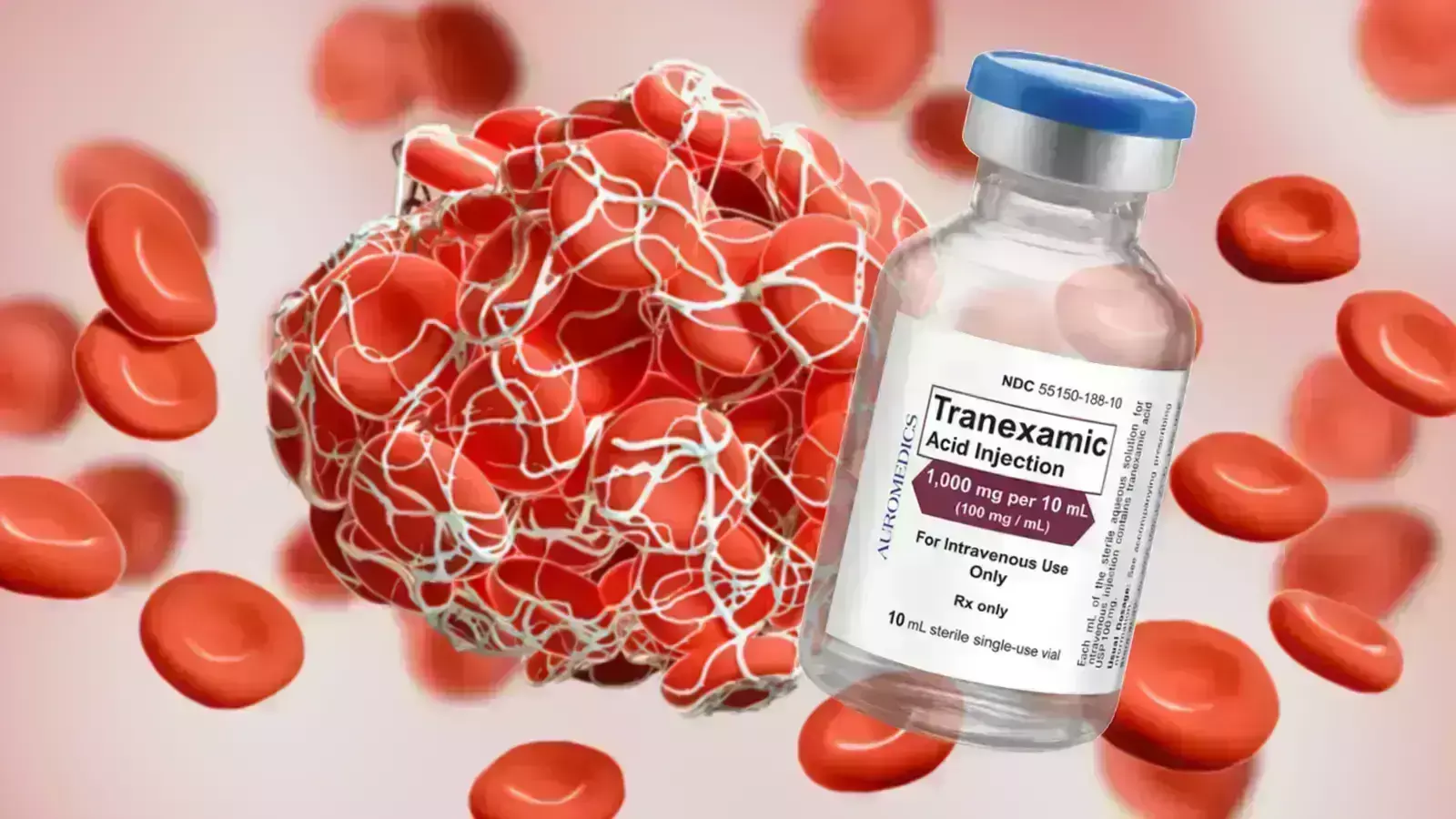- Home
- Medical news & Guidelines
- Anesthesiology
- Cardiology and CTVS
- Critical Care
- Dentistry
- Dermatology
- Diabetes and Endocrinology
- ENT
- Gastroenterology
- Medicine
- Nephrology
- Neurology
- Obstretics-Gynaecology
- Oncology
- Ophthalmology
- Orthopaedics
- Pediatrics-Neonatology
- Psychiatry
- Pulmonology
- Radiology
- Surgery
- Urology
- Laboratory Medicine
- Diet
- Nursing
- Paramedical
- Physiotherapy
- Health news
- Fact Check
- Bone Health Fact Check
- Brain Health Fact Check
- Cancer Related Fact Check
- Child Care Fact Check
- Dental and oral health fact check
- Diabetes and metabolic health fact check
- Diet and Nutrition Fact Check
- Eye and ENT Care Fact Check
- Fitness fact check
- Gut health fact check
- Heart health fact check
- Kidney health fact check
- Medical education fact check
- Men's health fact check
- Respiratory fact check
- Skin and hair care fact check
- Vaccine and Immunization fact check
- Women's health fact check
- AYUSH
- State News
- Andaman and Nicobar Islands
- Andhra Pradesh
- Arunachal Pradesh
- Assam
- Bihar
- Chandigarh
- Chattisgarh
- Dadra and Nagar Haveli
- Daman and Diu
- Delhi
- Goa
- Gujarat
- Haryana
- Himachal Pradesh
- Jammu & Kashmir
- Jharkhand
- Karnataka
- Kerala
- Ladakh
- Lakshadweep
- Madhya Pradesh
- Maharashtra
- Manipur
- Meghalaya
- Mizoram
- Nagaland
- Odisha
- Puducherry
- Punjab
- Rajasthan
- Sikkim
- Tamil Nadu
- Telangana
- Tripura
- Uttar Pradesh
- Uttrakhand
- West Bengal
- Medical Education
- Industry
Prophylactic parenteral tranexamic acid significantly reduces blood loss during and after caesarean section, reveals study

Prophylactic parenteral tranexamic acid significantly reduces blood loss during and after caesarean section, claims study published in the West African Journal of Medicine.
Haemorrhage is a leading cause of maternal mortality. The prophylactic use of tranexamic acid during vaginal delivery or caesarean section has the potential to reduce blood loss and postpartum anaemia. A study was done to determine the effectiveness and safety of tranexamic acid in reducing blood loss during and within twenty-four hours after a caesarean section. This was a randomised controlled study of two hundred and eighty-four (284) pregnant women booked for caesarean section at the University of Nigeria Teaching Hospital (UNTH), Ituku Ozalla, Enugu, Nigeria.
The women were randomised into two groups: the intervention group (n = 142) that received intraoperative tranexamic acid with routine post-delivery oxytocin injection and the control group (n =142) that received placebo with routine post-delivery oxytocin. Blood loss was assessed both intra and post-operatively using a standard technique. RESULTS: The mean intraoperative blood loss was significantly lower in the intervention group compared to the control group (435.9±34 vs. 918±258.7, P=0.036).
Similarly, the postoperative blood loss within twenty-four hours of surgery was significantly less in the intervention compared to the control group (232.71±67.4 vs. 717±317.6, P=0.031). The incidences of postoperative anaemia and blood transfusion intra or postoperatively were also significantly less in the intervention group compared to the control group (33.2% vs. 48.6; RR = 0.623; 95% CI = 0.46-0.84; p = 0.002, and 6.3% vs 24.6%: RR = 0.257; 95%CI = 0.13-0.52; P= < 0.001, respectively). There were no differences in the incidences of maternal and neonatal complications. The use of prophylactic parenteral tranexamic acid significantly reduces blood loss during and after caesarean section. It is therefore recommended in our obstetric practice as it has the potential to reduce the incidence of postpartum anaemia.
Reference:
Ndubuisi, A V., et al. "Use of Prophylactic Parenteral Tranexamic Acid for Reduction of Blood Loss During and After Caesarean Section: a Double-Blind Randomized Controlled Study." West African Journal of Medicine, vol. 41, no. 7, 2024, pp. 810-817.
Dr. Shravani Dali has completed her BDS from Pravara institute of medical sciences, loni. Following which she extensively worked in the healthcare sector for 2+ years. She has been actively involved in writing blogs in field of health and wellness. Currently she is pursuing her Masters of public health-health administration from Tata institute of social sciences. She can be contacted at editorial@medicaldialogues.in.
Dr Kamal Kant Kohli-MBBS, DTCD- a chest specialist with more than 30 years of practice and a flair for writing clinical articles, Dr Kamal Kant Kohli joined Medical Dialogues as a Chief Editor of Medical News. Besides writing articles, as an editor, he proofreads and verifies all the medical content published on Medical Dialogues including those coming from journals, studies,medical conferences,guidelines etc. Email: drkohli@medicaldialogues.in. Contact no. 011-43720751


